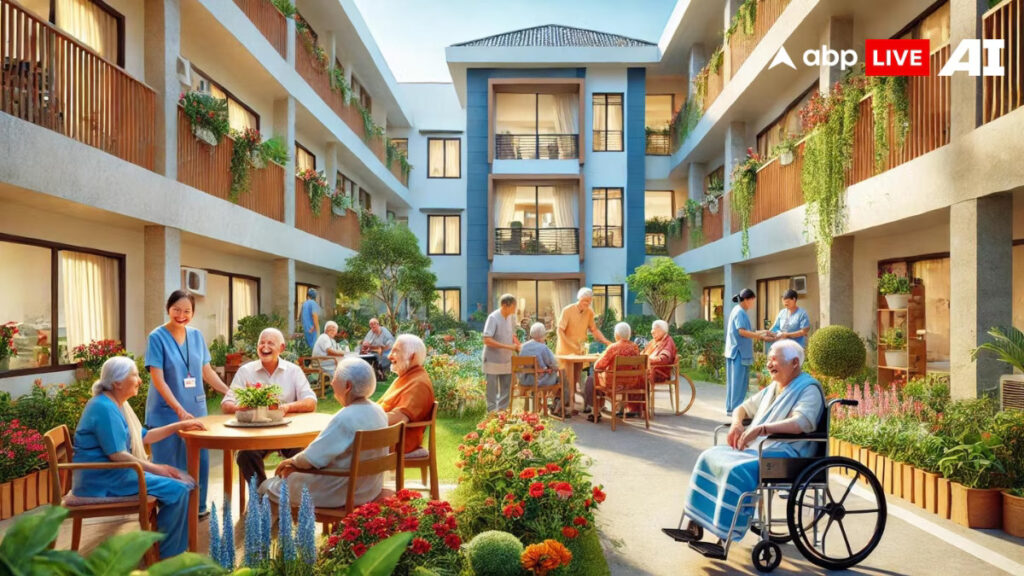In India, a country renowned for its rich cultural heritage and deeply rooted family values, the rise of old age homes is a paradoxical trend. Traditionally, Indian families have upheld the joint family system, where multiple generations coexist under one roof, fostering strong intergenerational bonds. However, the increasing prevalence of nuclear families and changing societal dynamics have led to a growing number of elderly individuals being sent to old age homes. This shift has far-reaching implications, not only for the elderly but also for their grandchildren, whose psychological well-being is profoundly impacted by this practice.
The Emotional Toll on Elderly Residents
Old age homes, while providing basic necessities and healthcare, often fail to cater to the emotional and psychological needs of their residents. For elderly individuals who have spent their lives nurturing their families, being sent away to an institutional setting can feel like abandonment. This leads to feelings of loneliness, depression, and a sense of being unwanted. The lack of familial warmth and interaction exacerbates their emotional distress, leaving many to grapple with a loss of purpose and identity.
In a country where respect for elders is deeply ingrained in cultural values, the decision to place parents or grandparents in old age homes can be seen as a breach of moral responsibility. This not only affects the elderly but also erodes the family’s moral fabric, often creating guilt and resentment among family members.

The Cultural Dissonance
The phenomenon of old age homes in India is largely a result of urbanization, increased professional commitments, and the breakdown of the joint family system. While these homes might be a practical solution in some cases, they are starkly at odds with India’s cultural ethos of caring for elders within the family.
The traditional Indian household celebrates the presence of elders as custodians of wisdom and tradition. Sending them to old age homes not only disrupts this dynamic but also signals a shift away from communal living and shared responsibilities. This cultural dissonance can lead to generational misunderstandings and conflicts within families.

Psychological Impact on Grandchildren
The psychological well-being of grandchildren affected by the separation from their grandparents deserves attention. Schools and communities can implement programs that help children understand the circumstances leading to such decisions. Counseling sessions and storytelling initiatives can bridge the emotional gap, ensuring children continue to feel connected to their grandparents, even if they are not physically present.
Grandparents play a pivotal role in the lives of their grandchildren. They are often the bearers of family traditions, storytellers, and sources of unconditional love and wisdom. When grandparents are sent to old age homes, grandchildren are deprived of these invaluable experiences, leading to several adverse psychological effects:
- Feelings of Guilt and Confusion: Children, observing their grandparents being sent away, may struggle to understand the rationale behind such decisions. This can lead to feelings of guilt, as they may internalize the situation and blame themselves for their grandparents’ absence.
- Loss of Emotional Support: Grandparents often act as confidants and emotional anchors for grandchildren. Their absence can leave a void in the child’s support system, leading to feelings of loneliness and emotional instability.
- Erosion of Family Values: Witnessing the separation of grandparents from the family can diminish a child’s understanding of familial bonds and responsibilities. This might contribute to a detached or individualistic outlook in their own lives as they grow older.
- Increased Anxiety and Fear: The departure of grandparents to an old age home can create a sense of insecurity in children. They may worry about their own parents’ future or fear abandonment themselves.

The Socioeconomic Drivers of Old Age Homes
India’s rapid urbanization and economic growth have reshaped family dynamics. As individuals migrate to urban centers for better job opportunities, maintaining a joint family system becomes increasingly difficult. The lack of space, time, and resources in urban settings often compels families to consider institutional care for their elderly members. Additionally, changing gender roles, where both partners are working, leaves little room for the traditional caregiving responsibilities that elders once enjoyed within the household.
The rise of old age homes in India reflects broader societal changes, but it comes at a significant emotional and psychological cost. For the elderly, it often means isolation and a sense of abandonment, while for grandchildren, it disrupts formative relationships and undermines the transmission of cultural values. Reversing this trend requires collective efforts to reinforce the importance of family bonds and prioritize the well-being of all generations. By fostering environments where elders are respected and cherished, we can ensure a brighter future for both the elderly and the younger generations in India.
(** This article is the sole perspective of the writer and does not have any intention to hurt any person, organization.)

